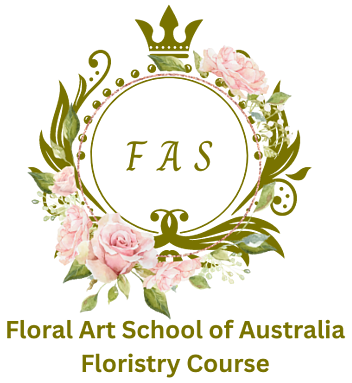Flowers have long been celebrated for their beauty and symbolism, and the art of floral design allows individuals to be able to create beautiful flower arrangements. If you have a passion for flowers and a desire to turn your love into a rewarding career or a delightful hobby, florist courses are your gateway to exploring the world of floristry. In this article, we'll delve into the enchanting realm of florist courses, offering insights into why they're worth considering and what you can expect to learn.
The Art of Floral Design
Floral design is more than just arranging flowers in a vase; it's a captivating art form. Florist courses provide a structured platform for individuals to delve into this art, learning the techniques and principles behind creating stunning floral arrangements.
Whether you're dreaming of becoming a florist or simply want to enhance your flower arranging skills for your own personal enjoyment, florist courses offer valuable insights into doing this.
Learning the Fundamentals
Florist courses typically begin with a strong foundation in the fundamentals of floral design. Students learn about various flower types, how to care for them, and how to select the right flowers and designs for different occasions. This knowledge is essential for creating harmonious and visually appealing designs.
Students also gain an understanding of basic design principles, including balance, proportion, harmony, rhythm and colour. These principles are the building blocks of floral design and are important to creating eye catching arrangements.
Exploring Styles and Techniques
Floral design is a versatile field with many different styles and techniques to explore. Florist courses often expose students to a range of design styles, from classic to contemporary, and include centrepieces, upright designs, hand-tied posies and wedding bouquets.
Aspiring florists can delve deeper into specific areas of interest, such as wedding flowers and floral designs for special events and occasions. This specialization allows individuals to develop expertise in their chosen field and cater to the preferences of their clients.
Hands-On Experience
One of the most exciting aspects of florist courses is the opportunity for hands-on experience. Students have the chance to work with fresh flowers and foliage, applying the knowledge and skills they've acquired in a practical way for gaining confidence.
Business and Entrepreneurship
For those aspiring to turn their floral passion into a business, florist courses often include information on the business aspects of the floral industry. Students learn about pricing, sourcing flowers and supplies, marketing, and customer service. These skills are very important for successfully running a floral business and attracting a loyal clientele.
Career Opportunities
Completing a florist course can open doors to various career opportunities. With the knowledge and skills acquired through these courses, individuals can pursue a career in the floristry industry.
For More Info:-
Advanced Certificate Floristry






Comments